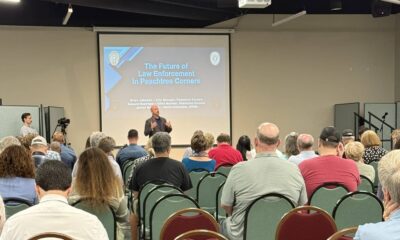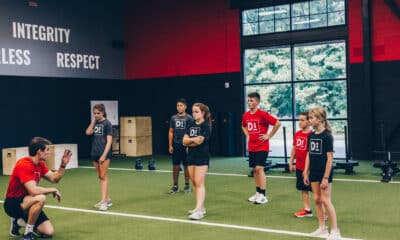Community
It Takes a Community
Published
2 years agoon
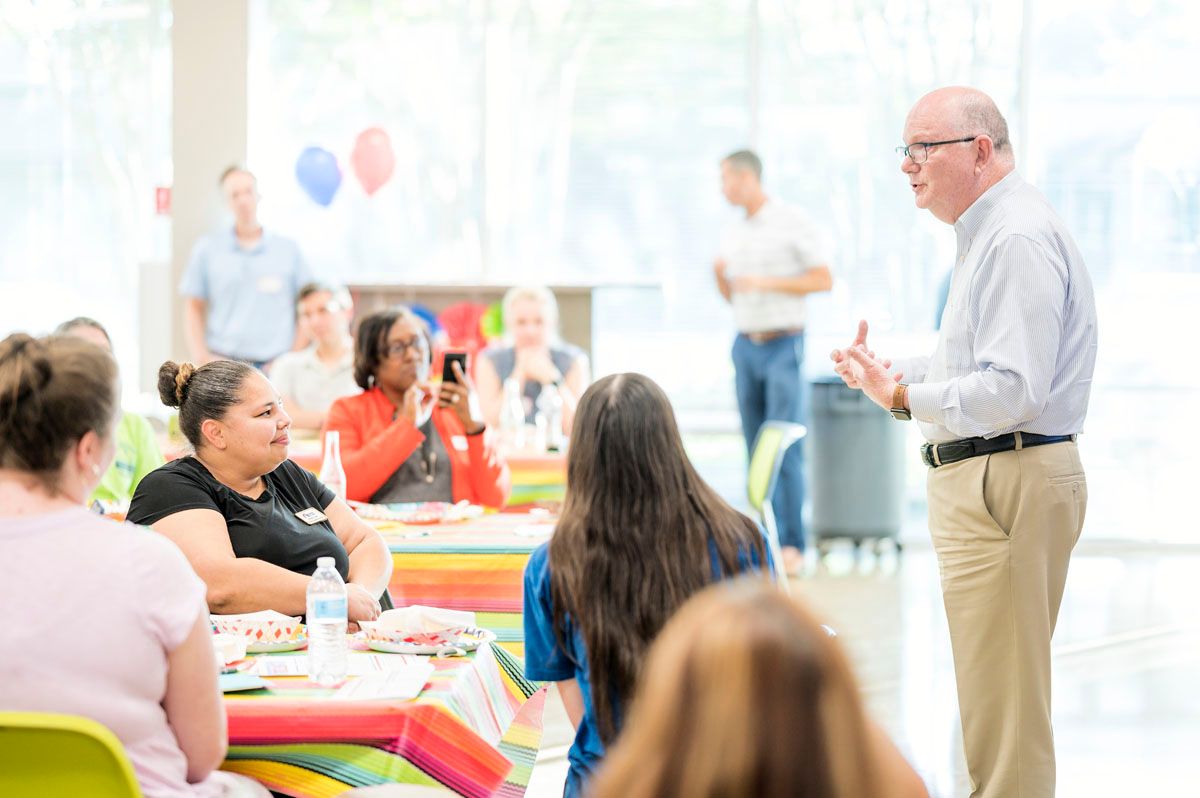
Neighborhood Cooperative Ministries shows how local nonprofits work together to better the lives of at-risk families.
A few years ago, Neighborhood Cooperative Ministries (NCM) acquired a complex to further the mission of helping neighbors who sincerely want to break their cycle of poverty and regain financial independence. To remind the community of its expanded facilities and partnerships with other nonprofits, NCM invited the community to an event called Tacos + Tours.
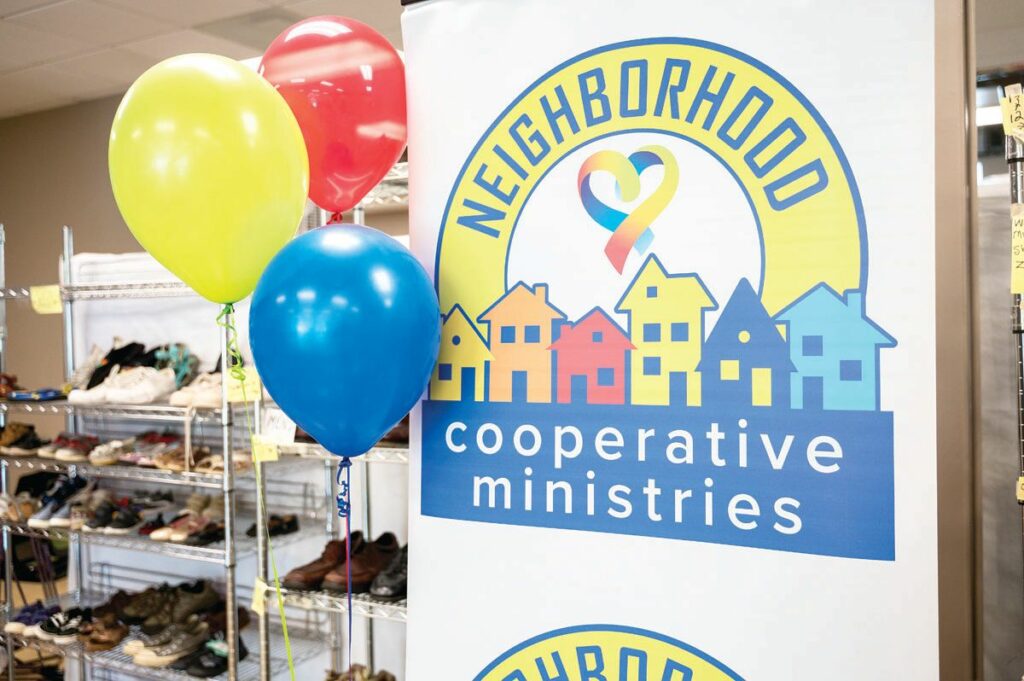
Stakeholders were informed about ways they could continue their support while munching on tantalizing Latin cuisine. Afterwards, guests were shown the improvements and processes NCM has devised to help those in need.
Ryan Jones, director of community development, kicked off things by explaining why he retired from his career in banking to begin the journey of helping improve the lives of people who were hungry, homeless, jobless and lacking some of life’s basic necessities.
“I realized today that it’s my two-year anniversary here,” he said. “The man is in the room who, kind of, led me on the journey to retire as a banker.”
He motioned to Randy Redner, who had been the president of the Community Foundation at the time and now is working at Rainbow Village.
“One of the things that stood out to me as I was doing my discernment and making my career change was ‘where could I make the most impact?’” said Jones.
He shared statistics about the pockets of poverty in the community. Then the various partners talked about how they work together to improve the lives of at-risk families in Gwinnett County.



Community helping community
“We’re now a county of more than a million people. We expect to have another 500,000 in the next 20 years,” said Jones. “The poverty rate has doubled, and the vast majority of that poverty is right here in our surrounding area.”
According to the United Way’s child well-being index, 45% of southwest Gwinnett’s children are living below the poverty line. That adds up to more than 11,000 kids.
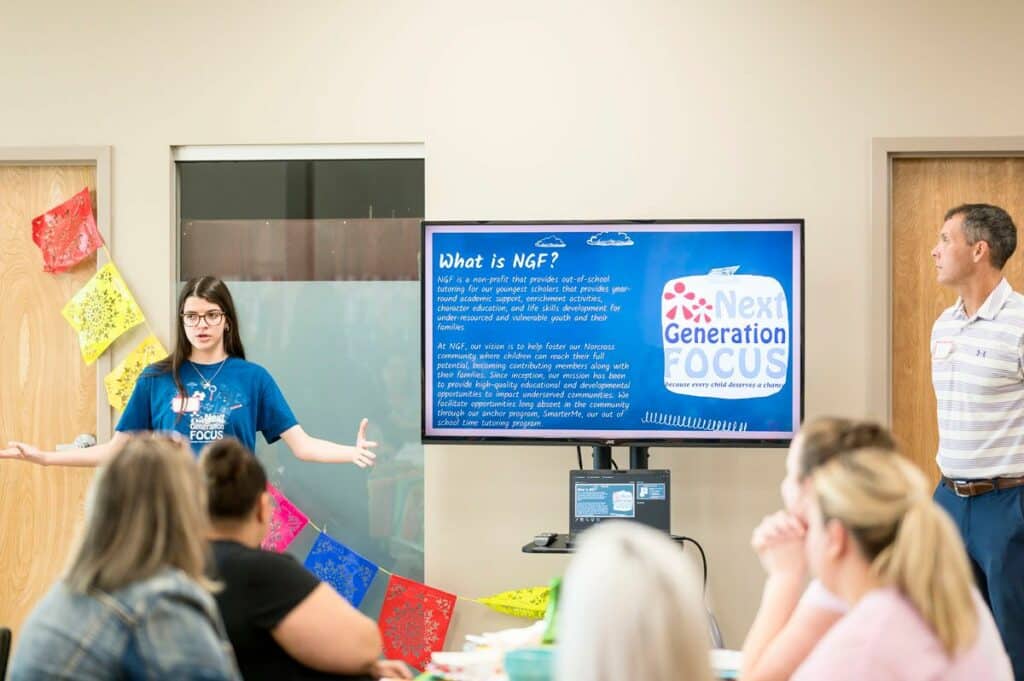
Lack of affordable housing is also a big issue in this area. “A lot of times, we have families that are living in extended stay hotels and paying more money to live there than I pay for my house,” said Jones. “What these families are facing, a lot of times, is a cycle of poverty. They’re forced to make choices between their basic needs. ‘Am I going to feed my kids healthy food or am I going to pay for transportation to get to work? Am I going to pay for my medical bills?’”
Jones added that this cycle of poverty creates low grades in school, high unemployment rates and many other negative effects.
Even though the area boasts some of the toniest homes, high incomes and high levels of education, there are pockets of poverty similar to those near Clarkson, where refugees are given solace, or west of Mercedes Benz Stadium, where homelessness and addiction are high.


Better Work Gwinnett
Luisa Beeco, a program manager for Better Work Gwinnett, part of the Georgia Center for Opportunity, (GCO) explained that GCO focuses on family work and education.
“Our goal is removing barriers, and we do it in many ways so that every person, no matter their race, past mistakes or the circumstances of their birth, can have access to quality education, fulfilling work and a healthy family life,” she said. “We have people who are working on research and policy and working on trying to keep families together.”
One way to keep families together is by making sure the adults have jobs. That’s where the Better Work program comes in.
“It’s not like a staffing agency — it’s different,” she said. “I would call it a referral program.”
Better Work has partnered with multiple employers in the area that have agreed to reach out to job candidates within 3 business days for an interview or a conversation to be able to go through their process.
“We have people go through our portal. It takes five minutes. They can do it on their phone,” said Becco.
Once the applicant signs up, Better Work has a 30- to 60-minute conversation to understand where they fit in the work world. They assess the barriers to work — transportation, childcare, etc. Instead of creating more programs, Better Work connects clients to existing resources such GED classes and English language classes.
Next Generation Focus
Rachel Mannino, a recent UGA grad, is one of the after-school program directors of Next Generation Focus, a nonprofit afterschool program that meets Monday through Thursday, 4:30 to 6:30 p.m. at Norcross First United Methodist Church.
“We also have locations at Discovery High School and Summerour Middle School, and we also meet virtually,” she said. “We provide out of school tutoring for our youngest scholars. That provides year-round academic support, enrichment activities, character education and life skills development for under-resourced and vulnerable youth and their families.”
She explained that since its inception, the mission has been to provide high quality educational and developmental opportunities to impact underserved communities. Students from kindergarten through 12th grade receive assistance in all subjects, including English language classes. There are even English language classes for parents.
Rainbow Village
Rainbow Village is the largest transitional housing nonprofit in Gwinnett County. It was founded by Christ Church in 1991 and used to be a bunch of scattered homes. It is now a 2.5 acre campus in Duluth.
“We can handle 30 homeless families at a time. Those families can stay with us for up to two years. We are not a quick fix program,” said Redner. “This is not a rapid rehousing program, because that just keeps rehousing them again and again. That doesn’t really help families.”
Redner explained that Rainbow Village is working to expanding so it can help more than 30 families at a time. “We have over 2,000 homeless kids in our school system,” he said. “We’ve got a lot of work to do and we’re working hard to expand.”
He said that when he was the CEO of the Community Foundation, he saw that there are six great cooperative ministries across the county that were created 30 years ago by very future thinking leaders.
“When you add all those cooperative ministries together, we see 100,000 people a year; 10% of our population will go through our cooperative ministry,” Redner said.
Rainbow Village sees a 90% success rate in helping families break the cycle of poverty. So, the charities started a pilot program in January where one or two social workers were embedded at other nonprofit organizations.
“We’re working side by side to take a look at that and learn how nonprofits can work closer together,” said Redner.
The NCM tour
Intake at NCM begins in the front lobby where clients are screened to make sure they are eligible for services. “Here they tell a little bit of their story, their background, a little bit of what’s going on,” said Jenny Ortega of NCM.
After being processed, they meet with caseworkers. “Once they come back to us, the options include clothing, food, hotel, rent and utilities,” added Ortega.
The complex also has space for those who just need a little extra help, such as once-a-month food distribution to stretch the grocery budget or clothes for back to school or job interviews, as well as assistance with utilities or finding work.
“We talk to them about all the various different ministries that we have here,” said Ortega. “It’s not just financial; there are also spiritual ministries,” she said.
And there are English classes and healthcare sessions where clients can get blood pressure checks and talk to someone about medical assistance and/or prescriptions assistance.
During COVID, NCM offered a drive-through pantry, but now clients can enter the expanded food facility with more space for cold and frozen foods. Healthy snacks are offered during tutoring sessions.
The changes at NCM are focused on helping families become independent and stand on their own. With the newly formed partnerships, all involved pray that the years ahead see more at-risk families becoming stable and able to give back to the organizations so they can help other families.
By the numbers
11,018 children face hunger in NCM’s service area.
256 individuals were served by NCM in 2022.
336,439 pounds of food was distributed by NCM in 2022.
41 families were served by Rainbow Village in 2022.
274 individuals were connected to jobs and services by Better Work Gwinnett in 2022.
450 to 500 students are served virtually and in person by Next Generation Focus.
28% of Norcross residents spend more than half of their income for rent.
119 billion pounds of food are wasted in the U.S. each year.
Related
Arlinda Smith Broady is part of the Boomerang Generation of Blacks that moved back to the South after their ancestors moved North. With approximately three decades of journalism experience (she doesn't look it), she's worked in tiny, minority-based newsrooms to major metropolitans. At every endeavor she brings professionalism, passion, pluck, and the desire to spread the news to the people.

City Government
Peachtree Corners Hosts Discussion About the Future of Local Policing
Published
2 days agoon
May 12, 2025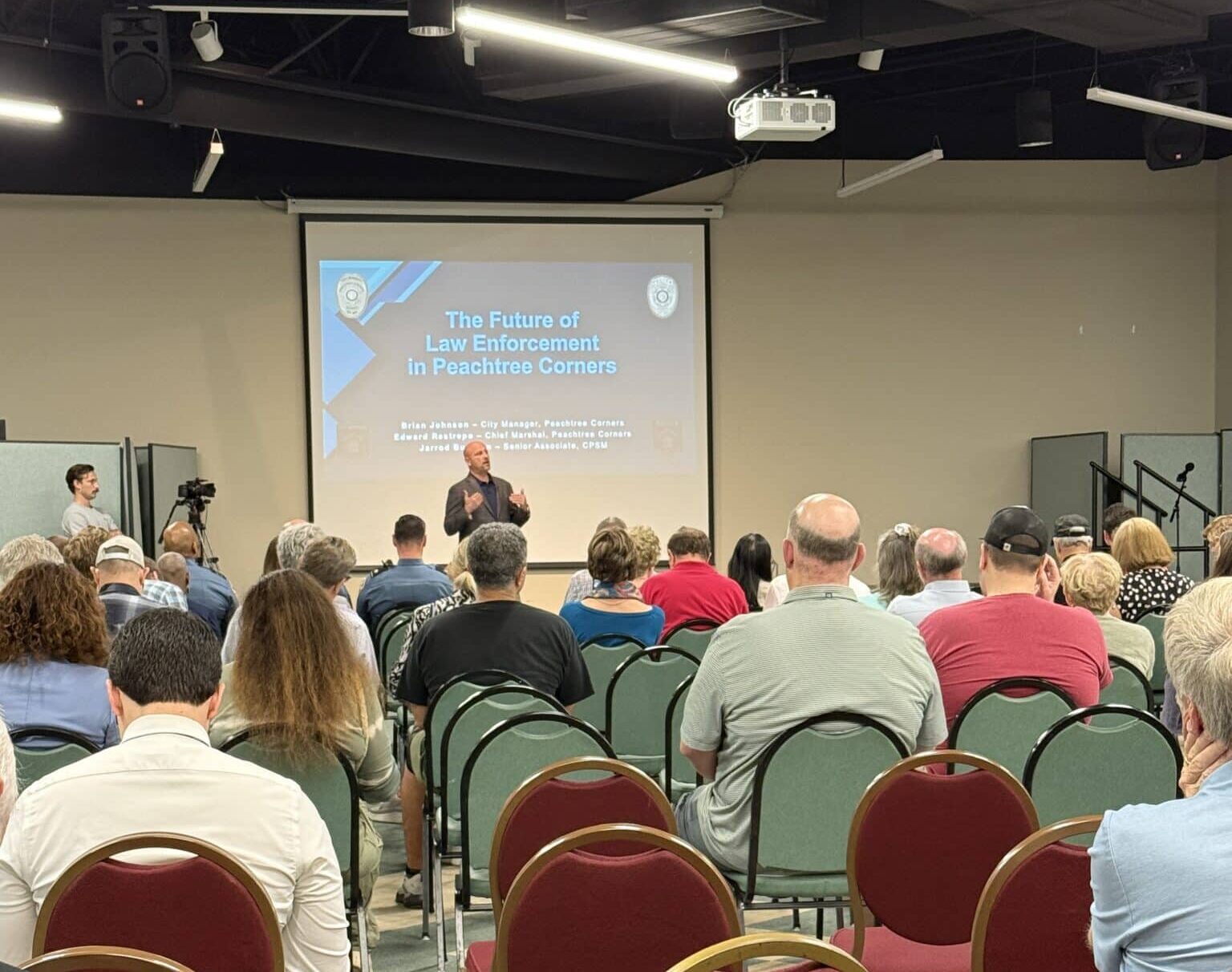
Although crime isn’t on the rise, and the Gwinnett County Police Department (GCPD) is fulfilling its role in fighting crime, the City of Peachtree Corners is asking residents, business owners and city stakeholders if they believe the city should form its own police department.
With over 100 people in attendance, City Manager Brian Johnson led the discussion about the future of policing in Peachtree Corners. He presented the findings from a survey conducted by the Center for Public Safety Management (CPSM), a nationally-recognized law enforcement consulting and training firm, as well as information about patrol officer staffing, response times, costs to tax payers and a potential timeline.
Ensuring public safety
Johnson kicked off his presentation by explaining that it is the duty of the mayor and city council to ensure public safety, including reviewing law enforcement.
“Maybe it needs to grow, maybe it needs to change its focus. But city council is the one that has the decision-making responsibility,” he said.
He was also adamant that this isn’t a done deal.

“I hit this point already, but I want to hit it again. This is the start of a conversation, a community conversation and feedback to council. There hasn’t been a decision,” he said. “Council has not received this presentation from me. They’re here to watch and learn from your feedback of this.”
Mayor Mike Mason was present at the meeting, along with all of the city council members except Eric Christ who was out of town and watching remotely.
Issues and obstacles
Johnson explained that the grounds for the inquiry were based on issues about communication, access to information and enforcement of city-specific ordinances. He cited an example where a city rule that private residences can’t be rented on a short-term basis like Vrbo or Airbnb wasn’t enforced by GCPD. An owner tried to circumvent the ordinance by only renting the outside of the house. A loud pool party ensued, and frustrated neighbors dialed 911.
“Officers showed up and they said, ‘We can’t enforce the city’s noise ordinance,’” Johnson said.
The first stage to fix this problem was creating the marshal program to bridge the gap between code enforcement and GCPD.
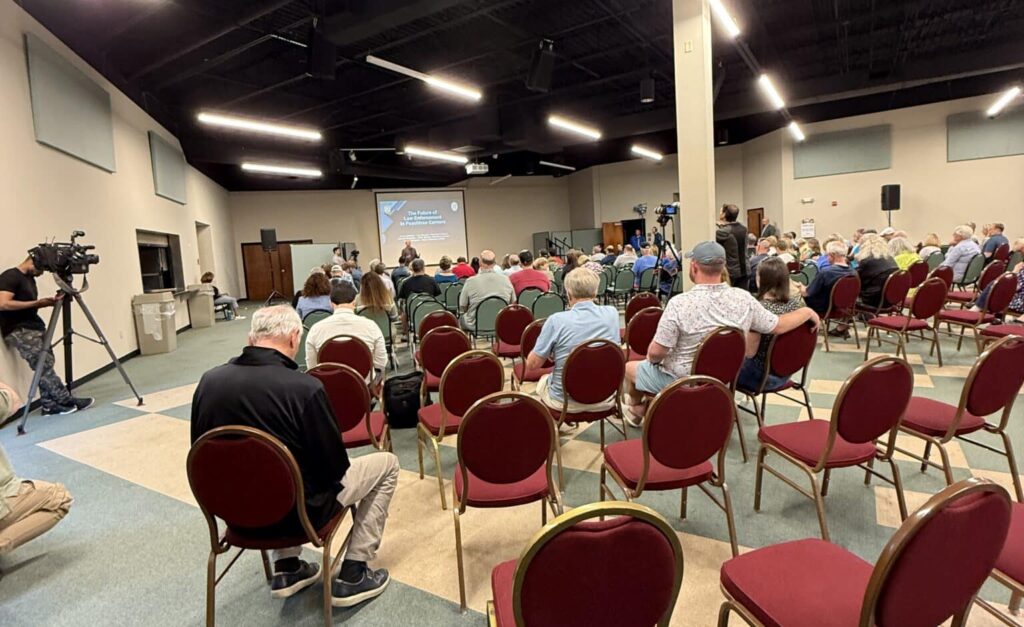
“[We thought] they would be able to enforce both local ordinance and state law, since they are a function of the city, and they could maybe be a force multiplier for Gwinnett since [marshals] don’t have to respond to 911 calls,” said Johnson.
But other issues arose shortly after the department was formed.
“We were still working towards getting that good balance, but we have been faced recently with a couple of things that make it harder for us,” said Johnson.
Seeking shared access
Instead of GCPD giving PTC marshals read-only, quick access to incident reports, dispatch calls and other information, the marshals department was required to file open records requests through the same process as any civilian.
“They were denied, as well as the city of Sugar Hill, [when] asked for the ability to see, not change, but see the computer-aided dispatch information, so that they would know where Gwinnett County police officers were; so that they could avoid stepping on their toes or maybe looking to support their efforts, and they haven’t been granted that,” said Johnson.
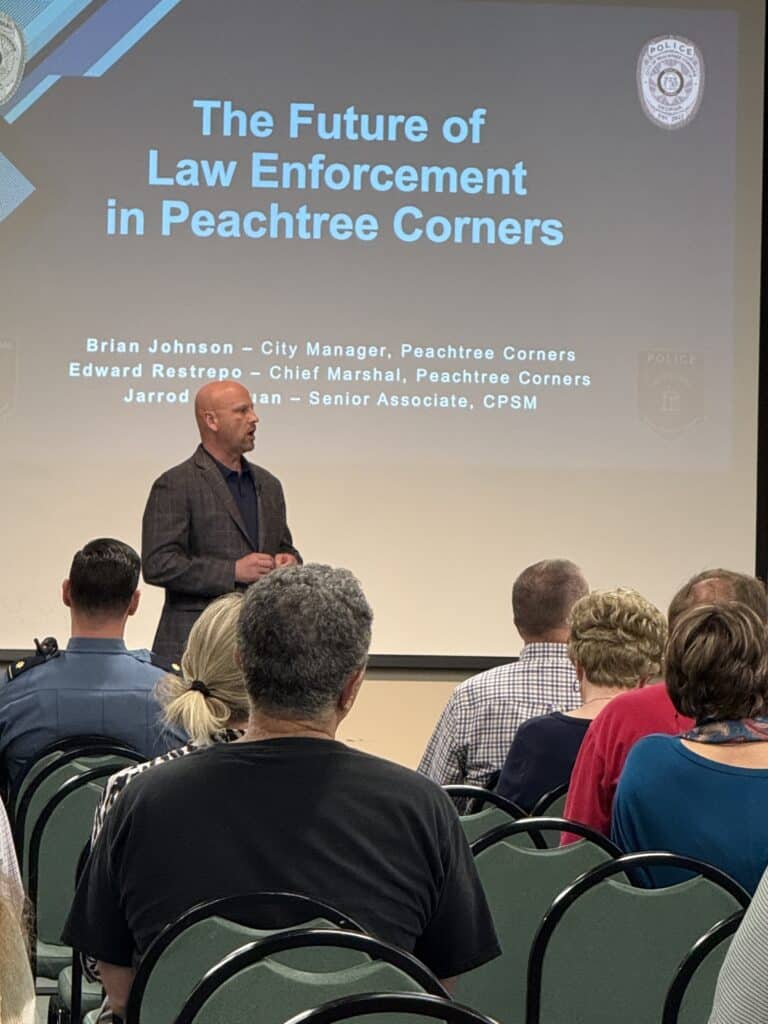
He added that the GCPD has video cameras on certain roadways that are used for various reasons, and law enforcement can use them when there’s crime in the area. Peachtree Corners marshals were denied access to those cameras.
“Conversely, we have a couple hundred cameras in the city, and we definitely want them to have access to them,” said Johnson. “So the frustration out of not being able to get that symbiosis between the marshals and police made us start thinking, all right, you know, is there another option?”
Community feedback
CPSM utilized data from GCPD to discern if Peachtree Corners could feasibly stand its own force. It also took into consideration crime trends, costs and many other factors. It recommended a 55-officer department, costing $12.1 million annually, with a $2.2 million upfront cost.
Comparing the two options to “renting vs. owning” the primary law enforcement agency in the city, Johnson presented pros and cons for each. Once the question-and-answer portion began, there was no obvious choice. Men and women, young and more advanced in age, had both similar and differing opinions.
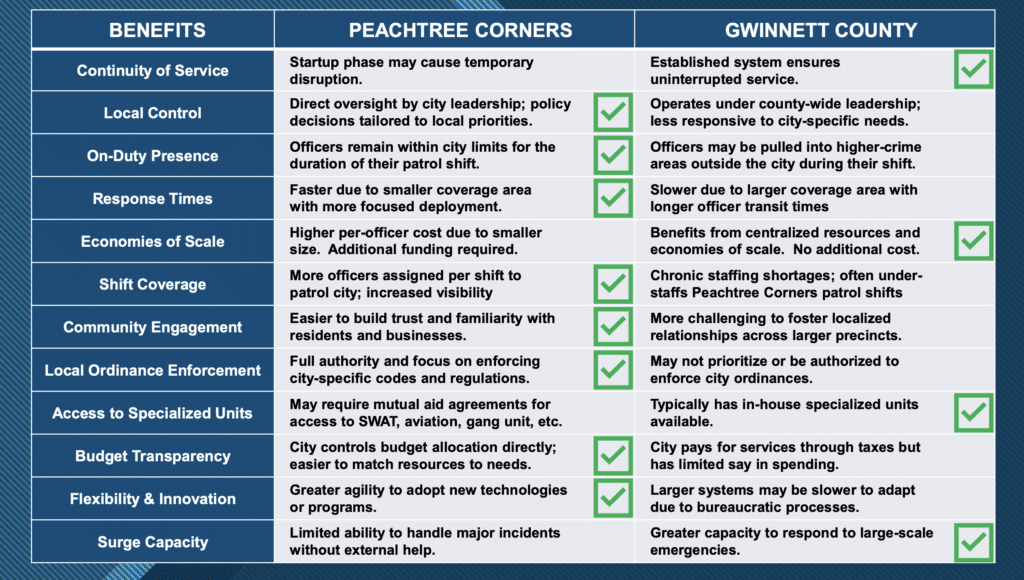
One young man, who identified himself as a local small business owner named Alexander, argued that with artificial intelligence increasing the efficiency of administrative tasks, perhaps the city wouldn’t need a full 68-man department of civilians and sworn officers.
Some accused the city of devising a solution in need of a problem. Others were concerned that paying approximately $100,00 for a study was throwing good money after bad.
But at the end of it all, the city is continuing to seek feedback and is encouraging everyone to make informed decisions. The meeting was taped and is available on the city website along with Johnson’s PowerPoint presentation, a copy of the study done by CPSM and a survey.
As far as a timeline goes, city officials would like folks to take the summer to mull it over and come back in the fall to take another look at the proposal.
Related
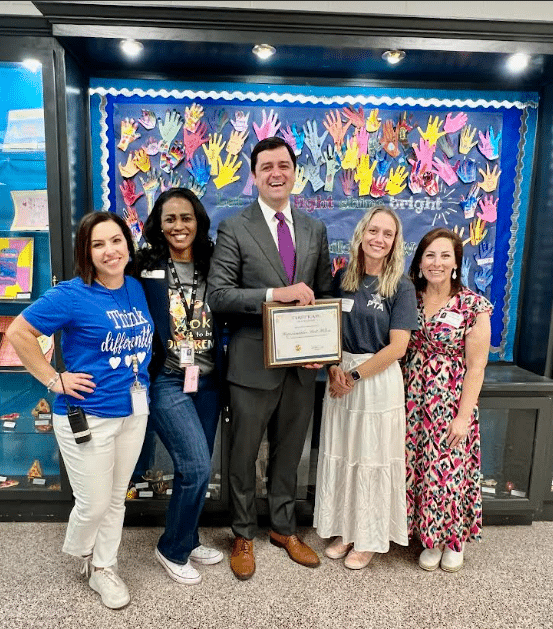
Simpson Elementary School celebrated Exceptional Children’s Week (ECW) last month with five days of special activities to recognize their special needs population and all of their exceptional students.
April 14–18 is set aside each year to celebrate children with disabilities, gifts and talents. This year’s ECW theme was Bridging Gaps and Building Futures, and the school was happy to take part.
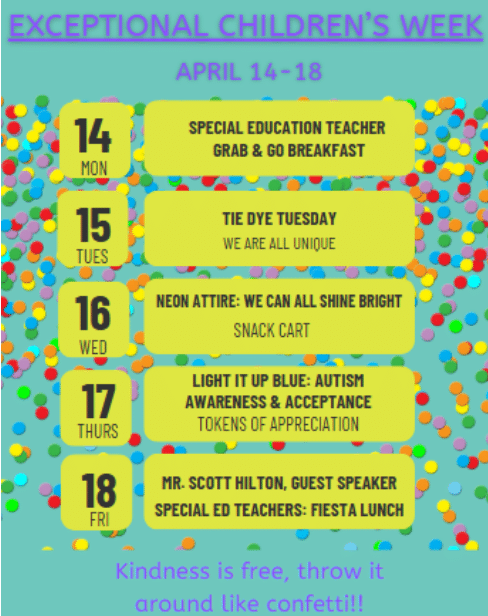
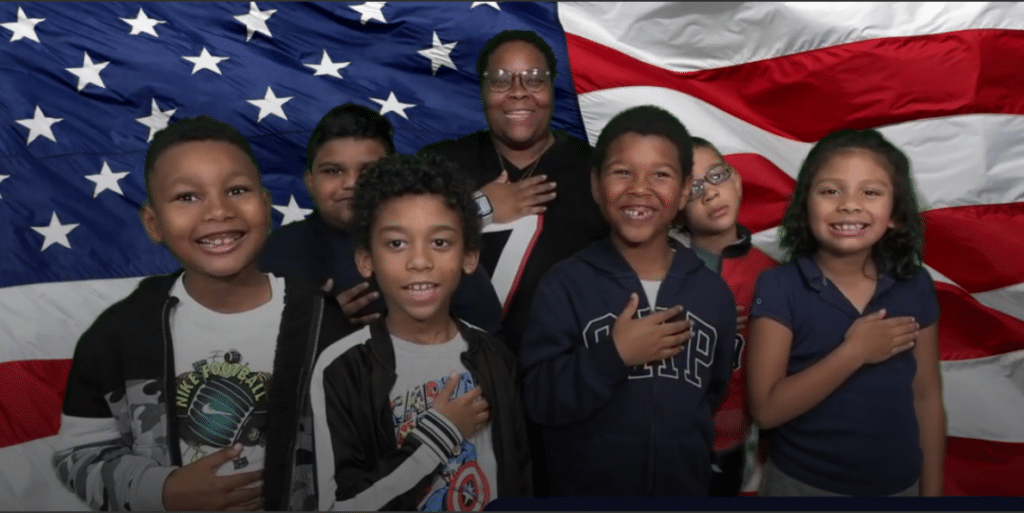
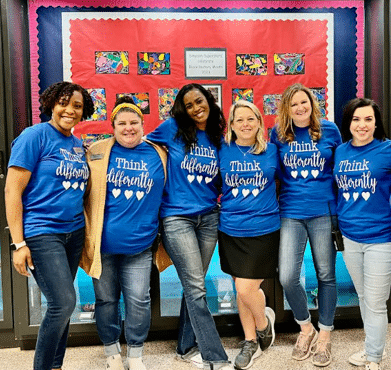
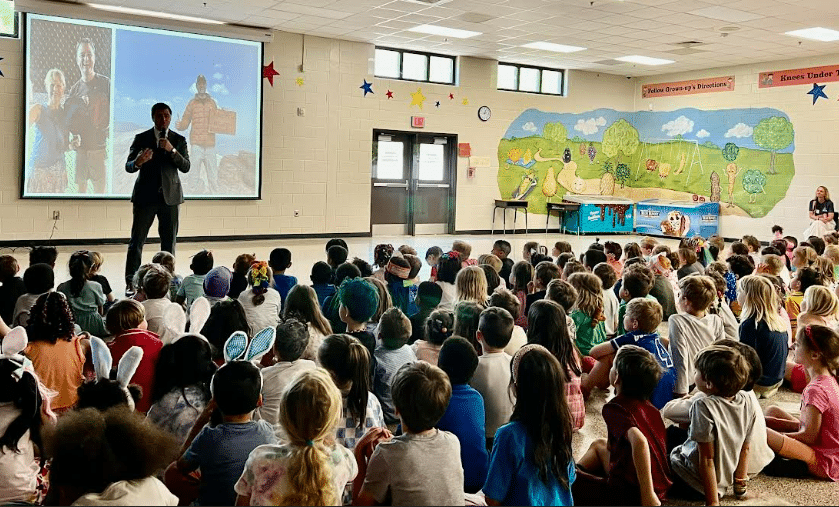
They highlighted each day of the week on the morning news with fun facts about notable people in society — and throughout history — who have overcome challenges with their disabilities, including actor Daniel Radcliffe (who has lived with dyspraxia for his entire life), Tom Cruise, Whoopi Goldberg, Frida Kahlo and Helen Keller.
Simpson Elementary’s technology team also pre-recorded various special needs classes reciting the Pledge of Allegiance every day of the week.
Guest speaker
To end their ECW with a bang, they invited former Simpson Elementary parent, State Representative Scott Hilton, to come in and speak to their K-2 classes about raising his son, Chase (who is autistic and now a student at Norcross High School), and how being different is okay.
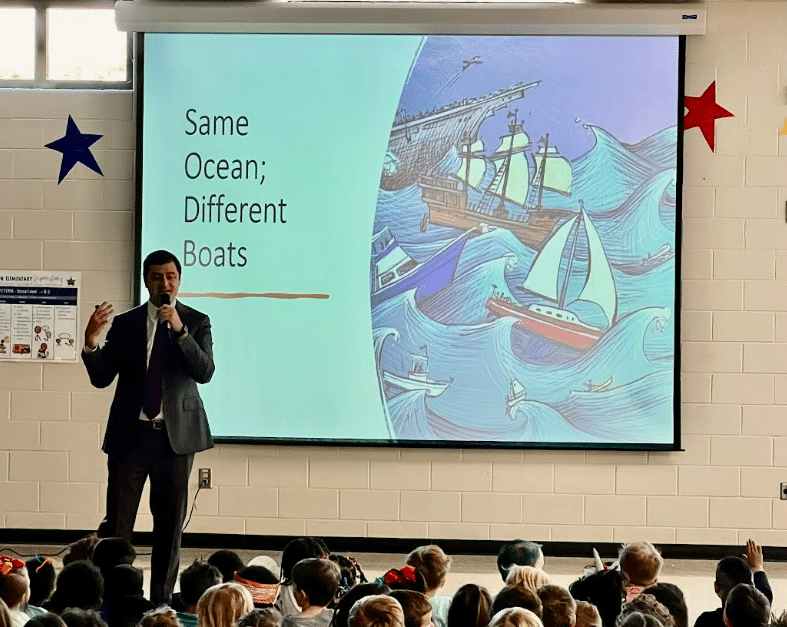
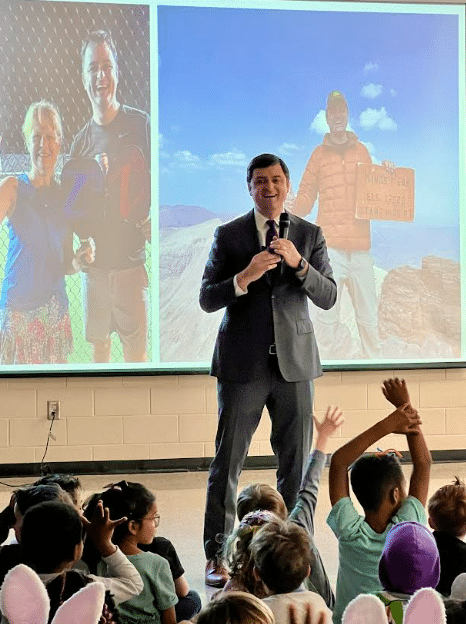
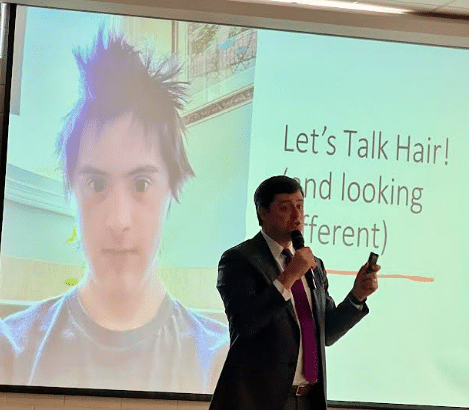
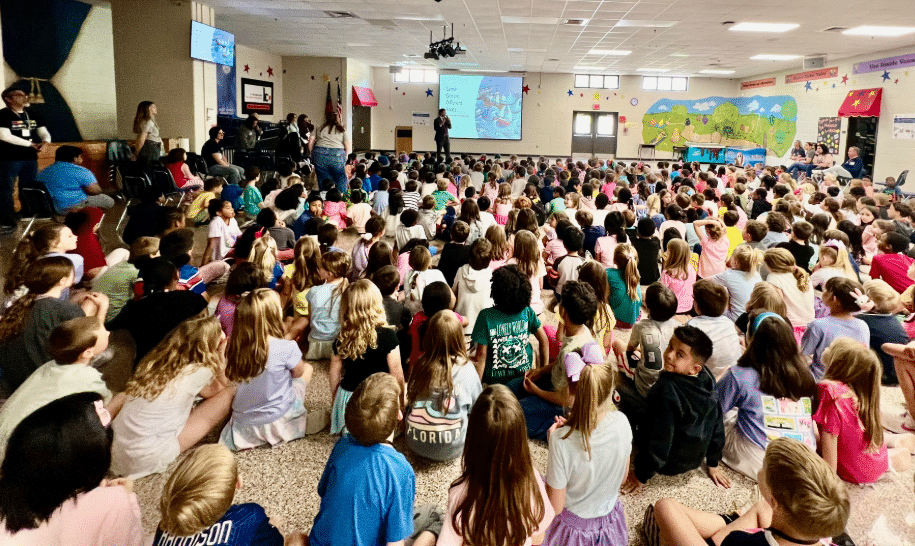
“Showing kindness and being inclusive is the best version of humanity,” said Dr. Taffeta Connery, Simpson Elementary School principal, in a statement about the event.
“Simpson Elementary has a special needs population of 214 (23%) of 946 students. [And] … we strive to ensure that our students are valued, recognized and instilled with high expectations for all.”
For more about Simpson Elementary, visit simpsones.gcpsk12.org.
Related
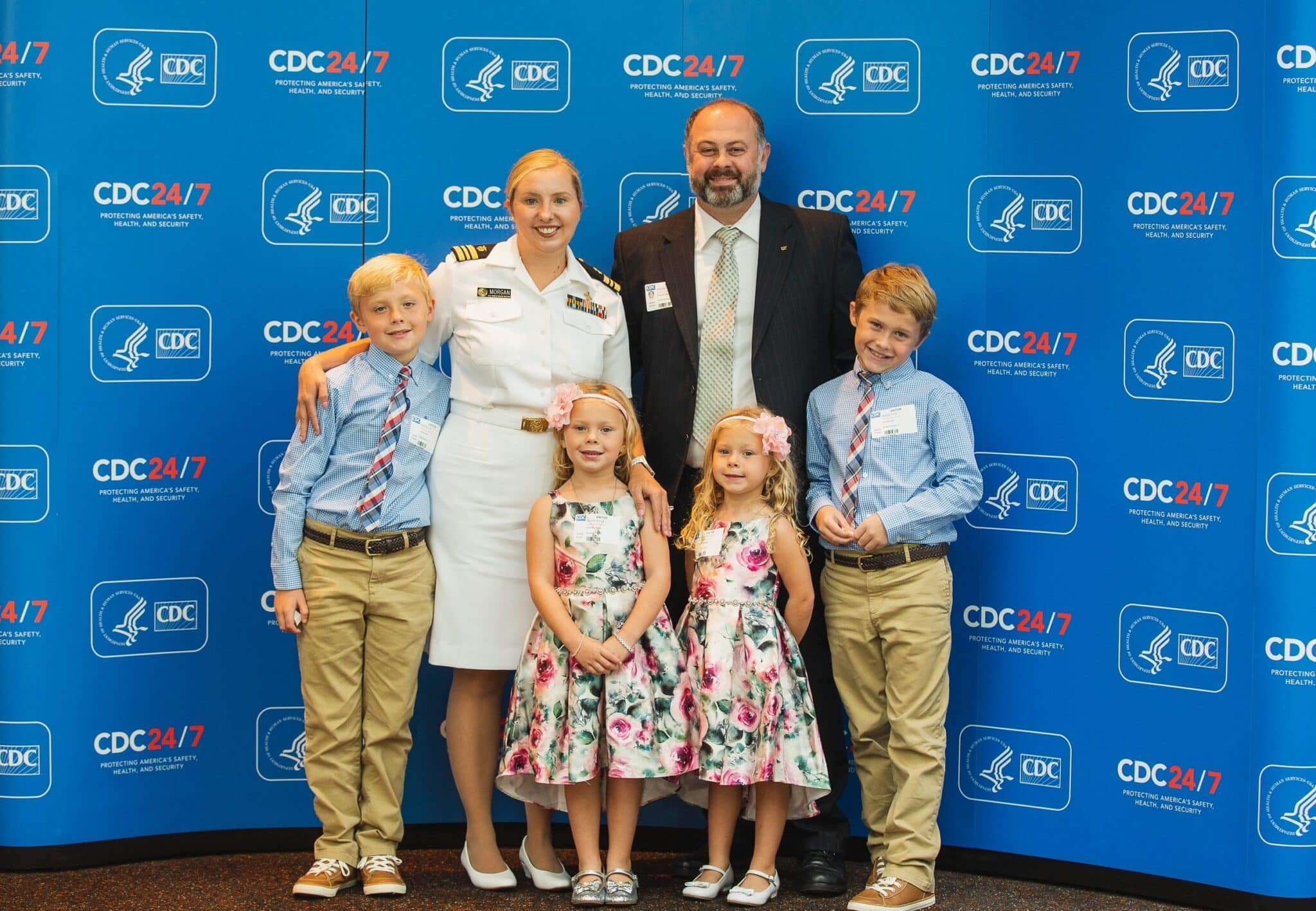
Motherhood comes with a lot of moving parts. For these Peachtree Corners moms, it also means leading teams, building careers and keeping the family schedule running. Most days, all at once.
This Mother’s Day, we’re spotlighting seven women in our community who are doing just that. They’re professionals in full-time leadership roles, showing up to strategy meetings by day and soccer games by night. They’re problem-solvers, planners, caregivers and coaches.
What connects them most isn’t just what they do, it’s how they do it. With intention. With humor. With support from partners, parents, friends and neighbors. And with a deep appreciation for the community they’ve built in Peachtree Corners.
Through their stories, we celebrate more than titles and to-do lists. We honor the quiet, constant work of showing up.
Tracy Lee
Tracy Lee leads with heart and vision as CEO of This Dot Labs, a software consultancy focused on helping businesses solve complex challenges through technology. Her engineering leaders collaborate with major clients like Stripe, DocuSign, Google, Wikipedia and Roblox. She’s passionate about her work.
“I love the mix of problem-solving and people leadership and knowing the work we do can make a real-world impact,” she said.
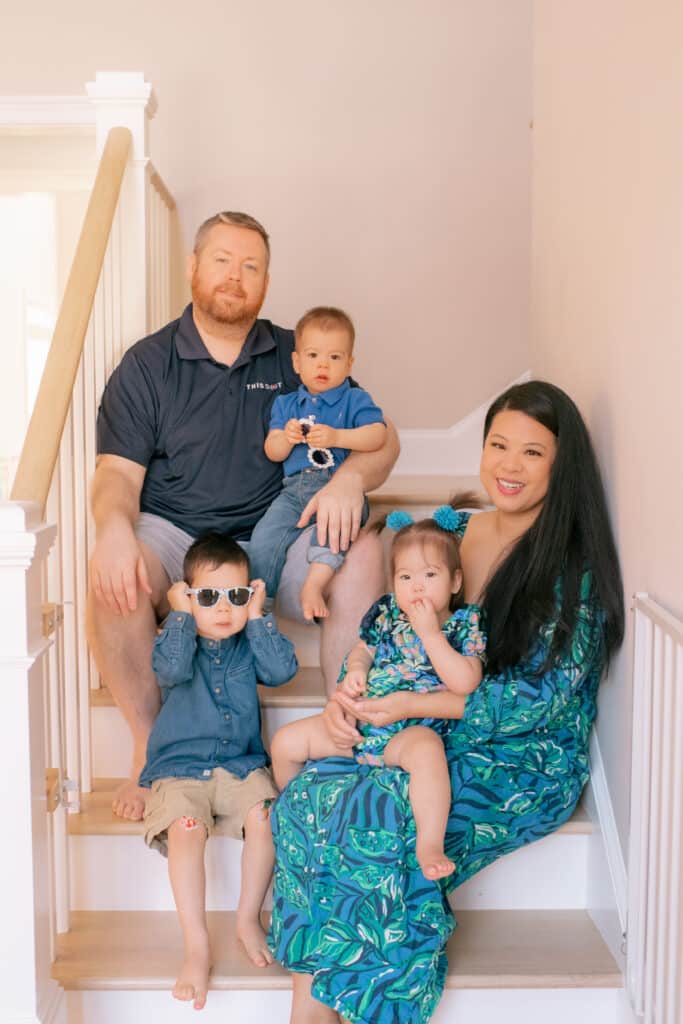
Tracy brings that same intentionality to her life at home, where she and her husband, Elliott Fouts, are raising three young children: William, 3, and twins Angelina and Marcus, who are 1.5. Despite the busy pace, Tracy is committed to being present in every role she plays.
“I have three full-time nannies and two part-time nannies, as well as girls around the neighborhood who are mama’s helpers to manage the chaos! With the help, we are able to do more and enjoy more time with our kids,” she said. “I try to be fully present, whether I’m in a meeting or building block towers in the living room. It’s never perfect, but we focus on what matters most in the moment.”
Tracy credits her support system for making it all possible. “I have an incredible partner and a strong support system between our nannies, friends and local community,” she said. “We have a local moms group for Asian moms called Georgia Asian Moms, and there are so many moms just in our neighborhood. It’s really great.”
Peachtree Corners has become a meaningful home base for the family. “We absolutely love it here,” she said. “There’s amazing programming for kids at The Forum every Tuesday in the spring and summer. It’s such a gem for young families.”
Weekends often include time outside and community adventures. “Sometimes the best hack is just piling everyone in the wagon and heading out for fresh air!” she said.
Tracy leans on a strong partner, a tight-knit group of friends and a local moms network. “It really takes a village,” she shared. “And I feel lucky to have one.”
Melissa Nicholson
Melissa Nicholson knows what it means to lead with heart and precision. As division vice president of program management & international solutions at Aya Healthcare, she helps internationally educated healthcare professionals enter the U.S. workforce.
“What I enjoy most is the opportunity to support these professionals in achieving their American dream,” she said. “While also contributing to improved patient outcomes across the country.”
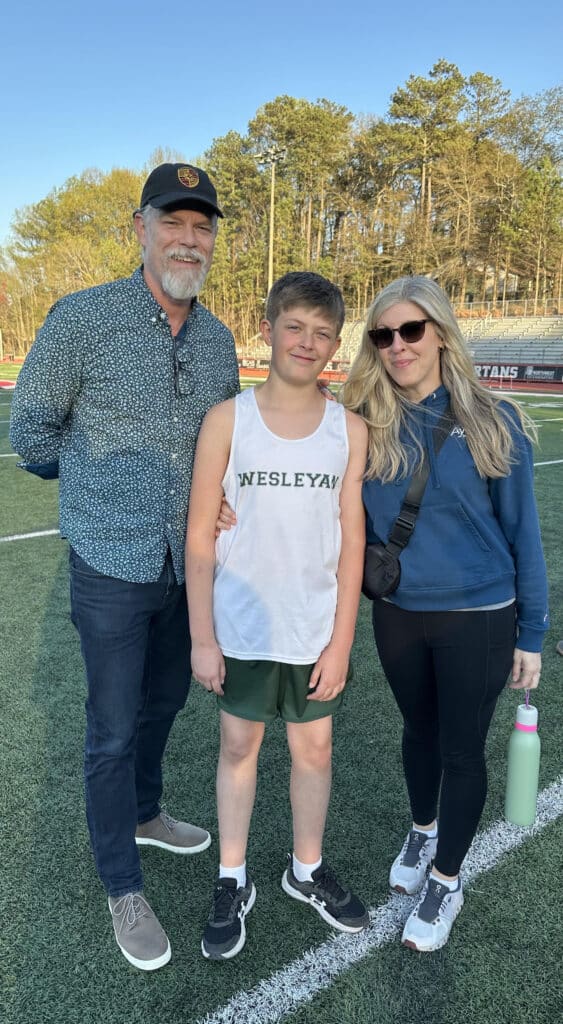
Melissa and her husband Greg recently celebrated 15 years of marriage. Their 12-year-old son, Luke, and a cat named Charlie bring a fun, loving dynamic of their own into the family. After relocating from East Atlanta a decade ago, they quickly embraced the Peachtree Corners community.
“It’s the people who make this community so special,” she said. “We’re truly grateful to count our neighbors as friends.”
Balancing an executive role with family life takes clarity and commitment. “I have to be very intentional with my time,” Melissa shared. She sets boundaries at work and makes sure her team knows when she’s off the clock for important family moments.
Wellness is a key part of her rhythm. “I recently started working out at Orangetheory Fitness,” she said. “I’ve noticed a significant boost in both energy and focus.” Sundays are for church and reflection.
When she travels for work, Greg holds it down at home. “We rely on each other to keep life running smoothly,” she said. “I’m grateful every day for that kind of partnership.”
On weekends, Melissa prioritizes quality time. Whether that’s a hike, pool day or baking something from scratch. “We’ve learned that if we don’t prioritize those moments, the weekends can quickly get taken over.”
Diva Hicks
For Diva Hicks, work isn’t just a job, it’s personal. As creative senior manager at CURE Childhood Cancer, her mission runs deep.
“At 12 years old, my sister was diagnosed with cancer,” she said. “CURE, in its early days, was a resource for my family.”

Her sister survived and now thrives. That experience shaped Diva’s career and continues to inspire her today. “This is my opportunity to give back to CURE for what it did for my family,” she said. “It’s rare to find a place where your purpose and passions collide.”
CURE also welcomes her whole family into the fold. “I get to bring my kids to events all the time,” she said. “They love feeling like they are a part of my work.”
Diva lives in Peachtree Corners with her husband John, their children Adair, 8, and Tripp, 6, and two golden doodles. “There is a sense of community here that I think is special,” she said.
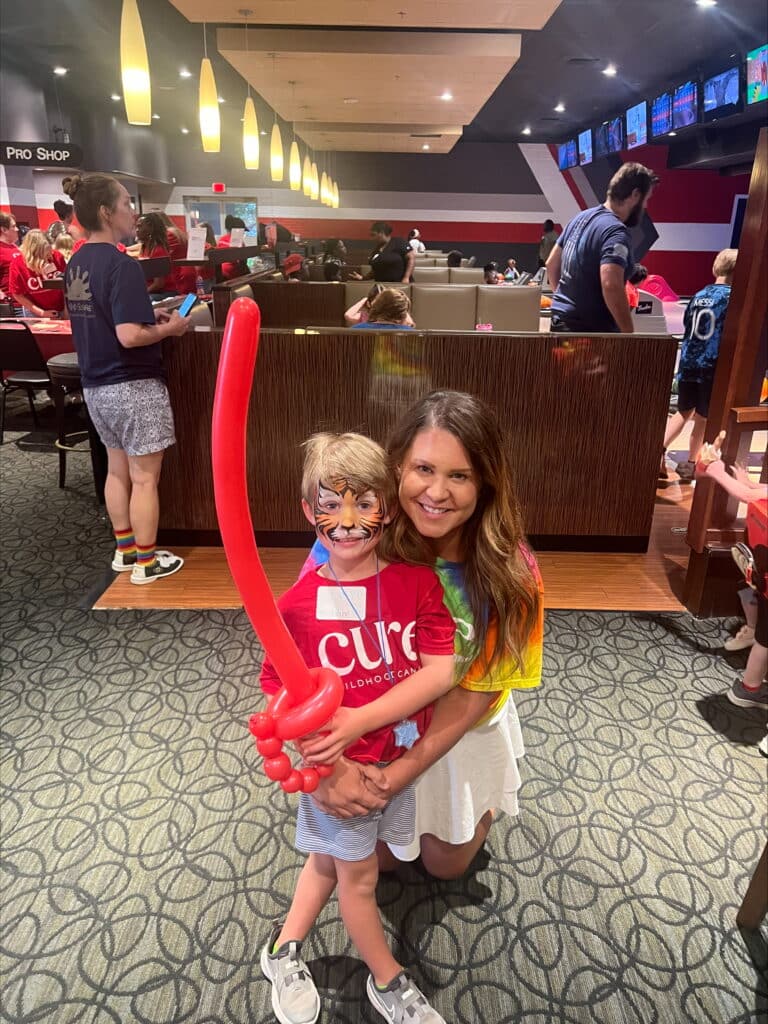
Balance is a daily effort. “John and I have tackled who helps with homework and on what days,” she said. “I would not be able to be the mom that I am without my village.”
She leads school committees and never misses events. “Is it easy? No,” she said. “But I honestly say, it’s not easy for any parent.”
Diva’s motivation is clear. “I want Adair to look at me and see that she can be a mom and have a career too.”
The family stays grounded with tennis weekends and careful planning. “We live by our calendar,” she said. “The more prepared I am, the easier life is.”
Kate Martin
Kate Martin knows how to bring structure to busy systems. As senior director of financial planning and analysis at Alloy Roofing, she finds energy in collaboration and clear strategy.
“In this role, I work closely with various teams across the business,” she said. “It supports the company’s strategy and performance.”
Kate and her husband, Nathan, are raising two children, 14-year-old Elliot and 10-year-old Evan, in Peachtree Corners. After ten years in the area, she credits the people for making it feel like home. “Life wouldn’t be the same without the relationships we’ve built here,” she said.
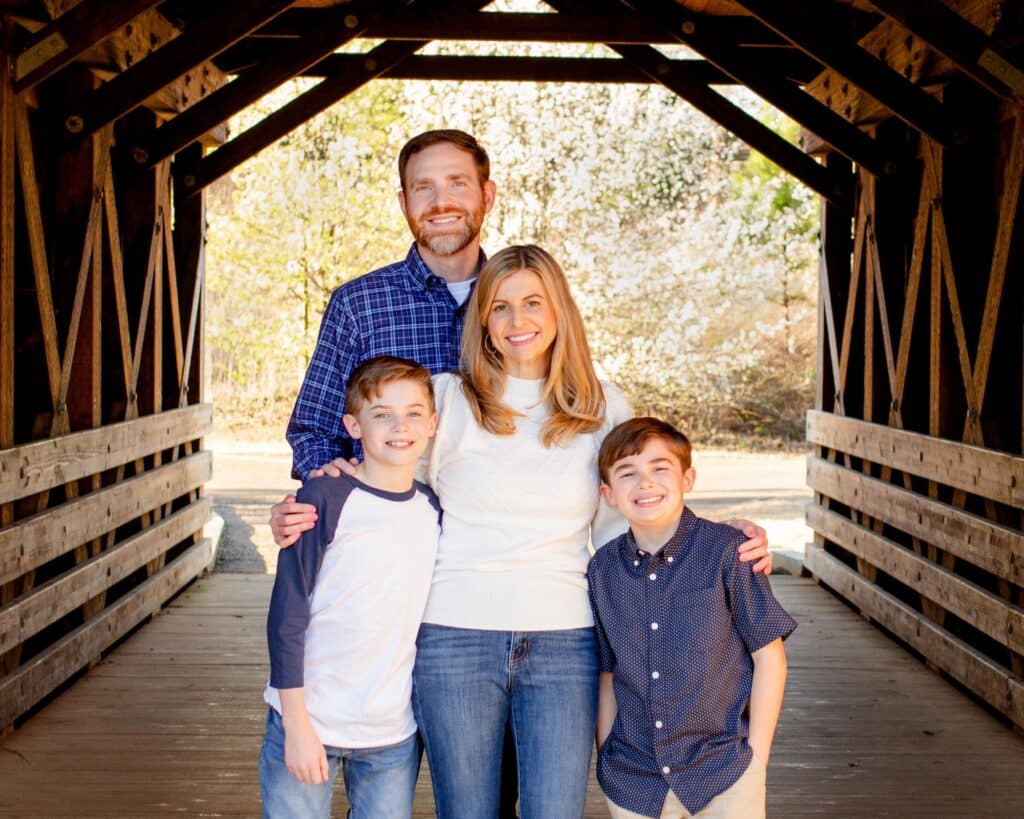
Balance starts with planning. “We keep a central Google calendar synced with all the family commitments that we review daily,” she said. “On Sundays we write on the kitchen boards.” Their chalkboard becomes the weekly roadmap, from meals to responsibilities.
“Seeing things laid out visually keeps me from overcommitting,” she added.
The family stays grounded by recognizing progress. “What keeps me motivated is celebrating both the big and small wins together,” she shared. “Sometimes, making it through the week is a victory in itself.”
Kate relies on a strong network. “We are very fortunate to have my parents nearby,” she said. “I also have an amazing network of women here in Peachtree Corners that I rely on.”
Her favorite hack? “An app Nathan created to help manage our calendars,” she said. “He created a solution to integrate these webcal subscriptions into a central subscription hub.” It’s called Skedj, and they’re piloting it now. “If you know this struggle and want to help us pilot the app, check out skedj.co!”
Linda Luna
As vice president at RSUI, Linda Luna manages risk while empowering people. She leads a team of underwriters who handle professional liability and cyber insurance. “I really enjoy my job because of its dynamic nature and the opportunity to help people in meaningful ways,” she said.
Whether she’s mentoring her team or protecting clients’ businesses, Linda finds value in impact. “It’s rewarding to know that my work has a positive impact on both my colleagues and our clients.”
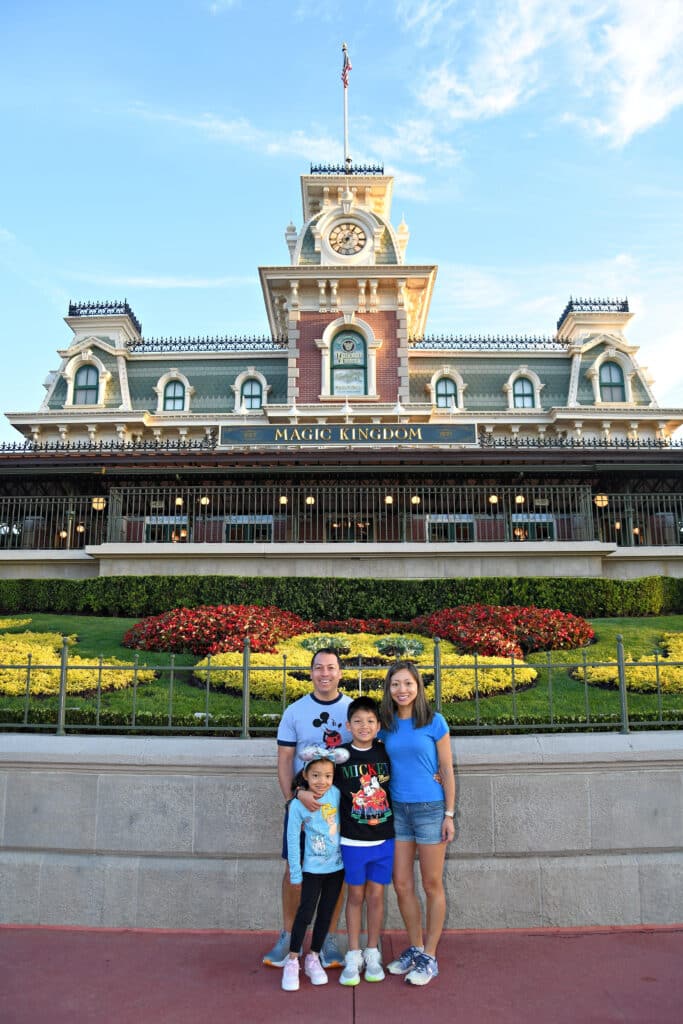
She and her husband, Ruben, are raising their two children, Dawson, 10, and Ava, 6, in Peachtree Corners. Her parents, though not under the same roof, are a constant part of daily life. “They help keep things running smoothly on the home front,” she said.
After nine years in the community, Linda has grown to love its blend of charm and convenience. “There is always something to do,” she said. “Whether it’s grabbing a bite at Ted’s or spending time with friends at Town Center.”
Balance comes from structure. “By establishing a solid schedule and sticking to it, I can ensure that my work commitments are met,” she said. “Being fully present allows me to strengthen my connection with my loved ones.”
When things get busy, she takes a practical approach. “Breaking it down into smaller, manageable tasks makes it much more approachable,” she said. “I remind myself to keep the bigger picture in mind and not sweat the small stuff.”
Linda’s support system is strong. “It truly takes a village, and I’m so grateful for mine,” she said. The family’s favorite tradition? A beach trip to 30A every May. “It’s our way of unwinding, reconnecting and making lasting memories together.”
Allison Blasetti
Allison Blasetti holds a national leadership role at Transamerica in the employee benefits division — a position that constantly challenges and motivates her. “What I enjoy most is the opportunity to use my talents to help my team,” she said. “I’m always growing and learning.”
She and her husband, John, are raising daughters Annie Mae, 8, and Olive, 6, in Peachtree Corners, where they’ve built strong ties in the community. “The amenities in our city provide many opportunities to run into friends around town or plan meet-ups,” she said.
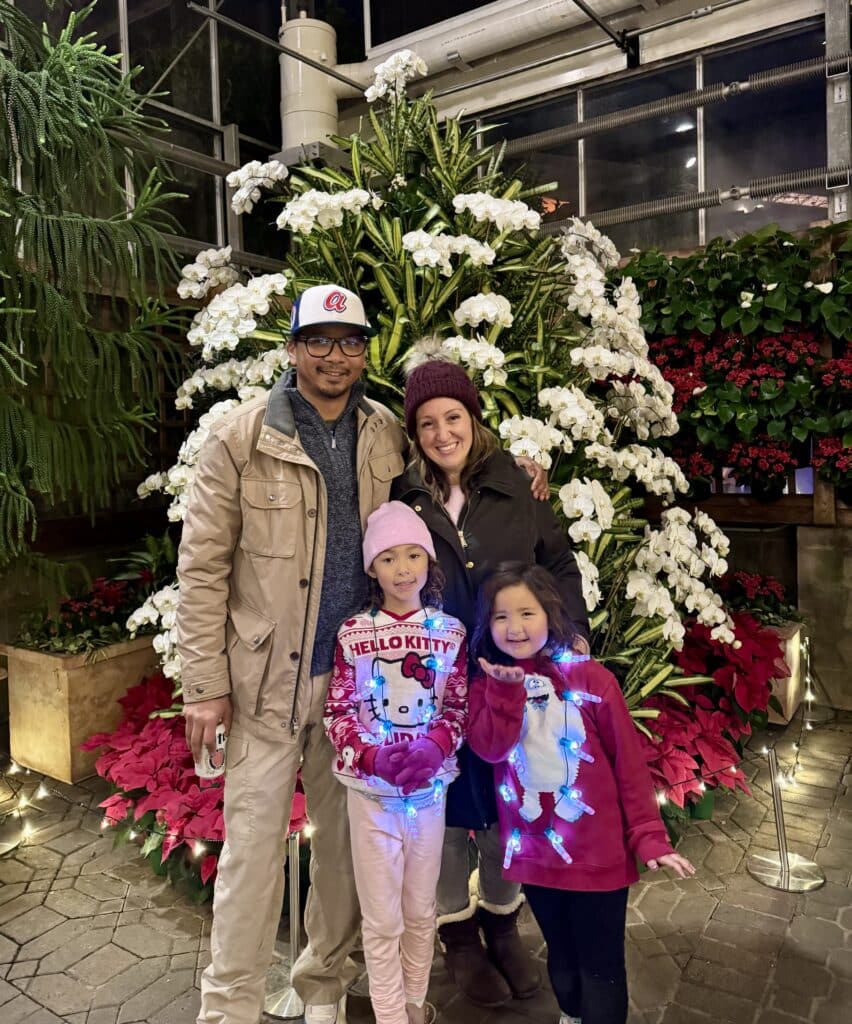
Allison works from home and prioritizes clear boundaries. “I turn off my app notifications because it quickly pulls me back in to work,” she said. “I also have a dedicated workspace in my house where I can leave at the end of the workday.”
She’s developed the habit of resetting her mindset, as well. “I quickly recognize [when] I’m mentally ‘at work’ and actively redirect my thoughts back to being in the present moment.”
Allison’s mornings begin at Burn Bootcamp, where she finds motivation and connection. “Spending an hour with my Burn community helps me get grounded for the day,” she said.
To stay organized, she and her husband use a shared family calendar. Her mom steps in often, especially when work travel ramps up. “I really don’t know what we would do without her.”
On weekends, Allison coaches Olive’s soccer team with the Peachtree Corners Football Club. “It brings me so much joy to be outside, see my soccer friends and watch my girls have fun,” she said. “Coaching makes it even better because I get to support the community that means a lot to me.”
Samantha Morgan
Samantha Morgan is a commander in the U.S. Public Health Service, currently assigned to the Centers for Disease Control and Prevention. Over her career, she’s responded to major public health threats, including Ebola, Zika and COVID-19. Today, her work centers on injury prevention, with a focus on issues like suicide, drowning and traumatic brain injury.
“What I enjoy most is being part of CDC’s mission to save lives and protect people,” she said. “I’m proud to contribute to work that makes a tangible difference in communities across the country.”
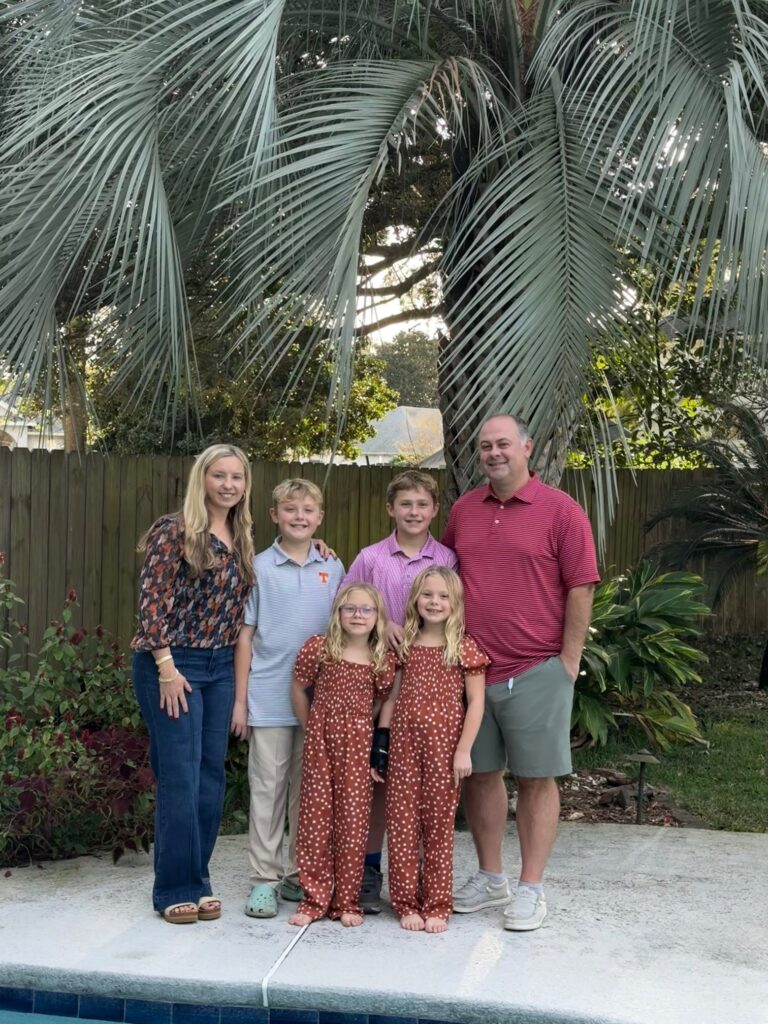
At home in Peachtree Corners, Samantha and her husband, Brian, are raising two sets of twins. Luke and Elliot are 12-years-old and love baseball, golf, basketball and band. Charlotte and Noelle are 8-years-old and enjoy piano, tumbling and tennis. “Life with four kids is wonderfully busy,” she said. “I often joke that I’m an unpaid Uber driver!”
After more than a decade in the neighborhood, Samantha credits their support system for helping them manage the day-to-day. “Our neighbors and friends — our village — have supported us through the hardest moments and celebrated life’s greatest joys with us,” she said.
Structure is key to keeping things on track. “We live and breathe by our family calendar,” she said. “Shared schedules, group texts and carpooling help us keep things running.”
Her children remain Samantha’s biggest motivators. “They know, ‘mom’s going to work to help make the world a safer place,’” she said.
The family also leans on routines and simple joys. “Checklists are my go-to mom hack,” she shared. One of their favorite traditions is make-your-own-pizza night. “It’s messy, silly and something we all genuinely look forward to.”
The seven women featured here offer a glimpse into the lives of working moms in Peachtree Corners. Each one balances career, family and community with care and intention. They are just a few of the many women — both working and stay-at-home — who nurture, organize and uplift the people around them every day.
Whether leading teams or guiding their children, mothers across this community show up with strength, love and quiet determination.
You’ll find this story in the May/June issue of Peachtree Corners Magazine, available in print and digital edition.
Related
Read the Digital Edition
Subscribe
Keep Up With Peachtree Corners News
Join our mailing list to receive the latest news and updates from our team.
You have Successfully Subscribed!

Digital Edition

Official City Merchandise Line Debuts This Saturday at Town Green

Paul Duke STEM High School Student Earns CGO Scholarship

World Blood Donor Day Starts Here: Theo’s Miracle, Katherine’s Mission [Podcast]

Executive Function: A Tribute to Working Moms

Peachtree Corners Grows Business Opportunities Through Economic Development

Simpson Elementary Marks Exceptional Children’s Week

Peachtree Corners Hosts Discussion About the Future of Local Policing

Atlanta’s Dog Howl-O-Ween Festival Moving to Peachtree Corners for 2025

D1 Training Brings New Fitness Concept to Peachtree Corners

Peachtree Corners Hosts Discussion About the Future of Local Policing

City of Peachtree Corners Awarded Certificate of Achievement From GFOA for Seventh Straight Year

Simpson Elementary Marks Exceptional Children’s Week

Executive Function: A Tribute to Working Moms

Official City Merchandise Line Debuts This Saturday at Town Green

Peachtree Corners Grows Business Opportunities Through Economic Development

Light up the Corners [Video]

Capitalist Sage: Business Leadership in Your Community [Podcast]

Cliff Bramble: A Culinary Adventure through Italy

Top 10 Brunch Places in Gwinnett County

A Hunger for Hospitality

THE CORNERS EPISODE 3 – BLAXICAN PART 1

Top 10 Indoor Things To Do This Winter

The ED Hour: What it takes to Remove Barriers from Education






